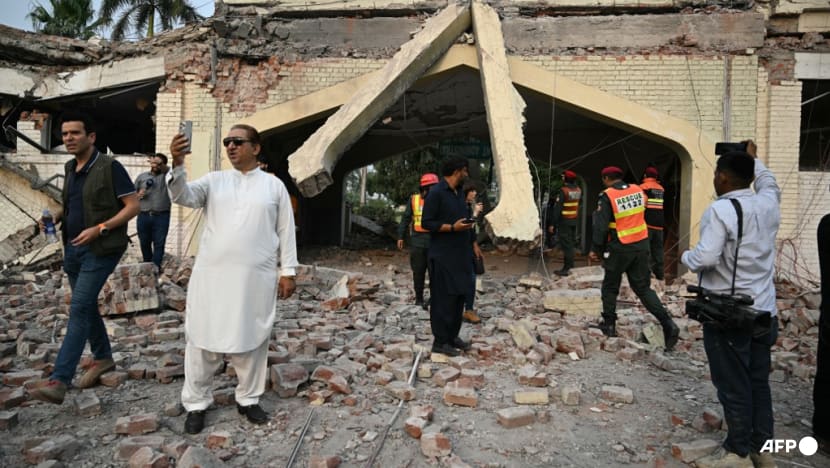India says strikes on Pakistan exercised its 'right to respond'

A general view of a damaged building at the Government Health and Educational complex in Muridke about 30km from Lahore, Pakistan, on May 7, 2025, after Indian strikes. (Photo: AFP/Farooq Naeem)
NEW DELHI: India's Defence Minister Rajnath Singh said Wednesday (May 7) that missile strikes against Pakistan were a "carefully planned" operation that exercised New Delhi's "right to respond".
India's military said the strikes destroyed "nine terrorist camps" belonging to those it blames for an attack last month in Indian-administered Kashmir that killed 26 people.
The Indian strikes included targets in Punjab, its first attacks on Pakistan's most populous province since the last full-scale war between the old enemies more than half a century ago, triggering fears of further hostilities in one of the world's most dangerous flashpoints.
Pakistan said 21 civilians were killed in the strikes, with five more deaths reported in cross-border gunfire that followed.
Among the dead were four children, including two three-year-old girls, according to officials in Islamabad.
"The targets we had chosen were destroyed with great precision and sensitivity, ensuring that no civilian population or area was affected," Singh told reporters in New Delhi. "We have shown sensitivity by ensuring that no civilian population was affected in the slightest."
"We only targeted terror camps, exercising our right to respond to the attack on our soil."
India had been widely expected to respond to the Apr 22 assault on tourists in Kashmir, which it blamed on Pakistan-based militant group Lashkar-e-Taiba, a UN-designated terrorist organisation.
Singh said the operation, in what New Delhi called "Operation Sindoor", was aimed solely at "terror infrastructure", describing it as a calibrated response that reflected India's restraint and professionalism.
"We can say that it was a display of precision, alertness and humanity", he said.
Sindoor is the Hindi language word for vermilion, a red powder that Hindu women put on the forehead or parting of their hair as a sign of marriage.
India had earlier said two of three suspects in the tourist attack were Pakistani nationals, without detailing any evidence.
It said the strikes used precision weapons to target "terrorist camps" that served as recruitment centres, launchpads and indoctrination centres and housed weapons and training facilities.
Indian Foreign Secretary Vikram Misri, the top official in its external affairs ministry, told the briefing that the strikes were to pre-empt further attacks on India.
"Pakistan has been testing our patience. The good thing is India is taking revenge," said Kumar Ravi Shankar, a Delhi lawyer.
Islamabad rejects backing the Apr 22 attack.
Pakistan's Defence Minister Khawaja Muhammad Asif earlier accused Indian Prime Minister Narendra Modi of launching the strikes to "shore up" his domestic popularity, but said that Islamabad had struck back.
"The retaliation has already started," Asif told AFP. "We won't take long to settle the score."















